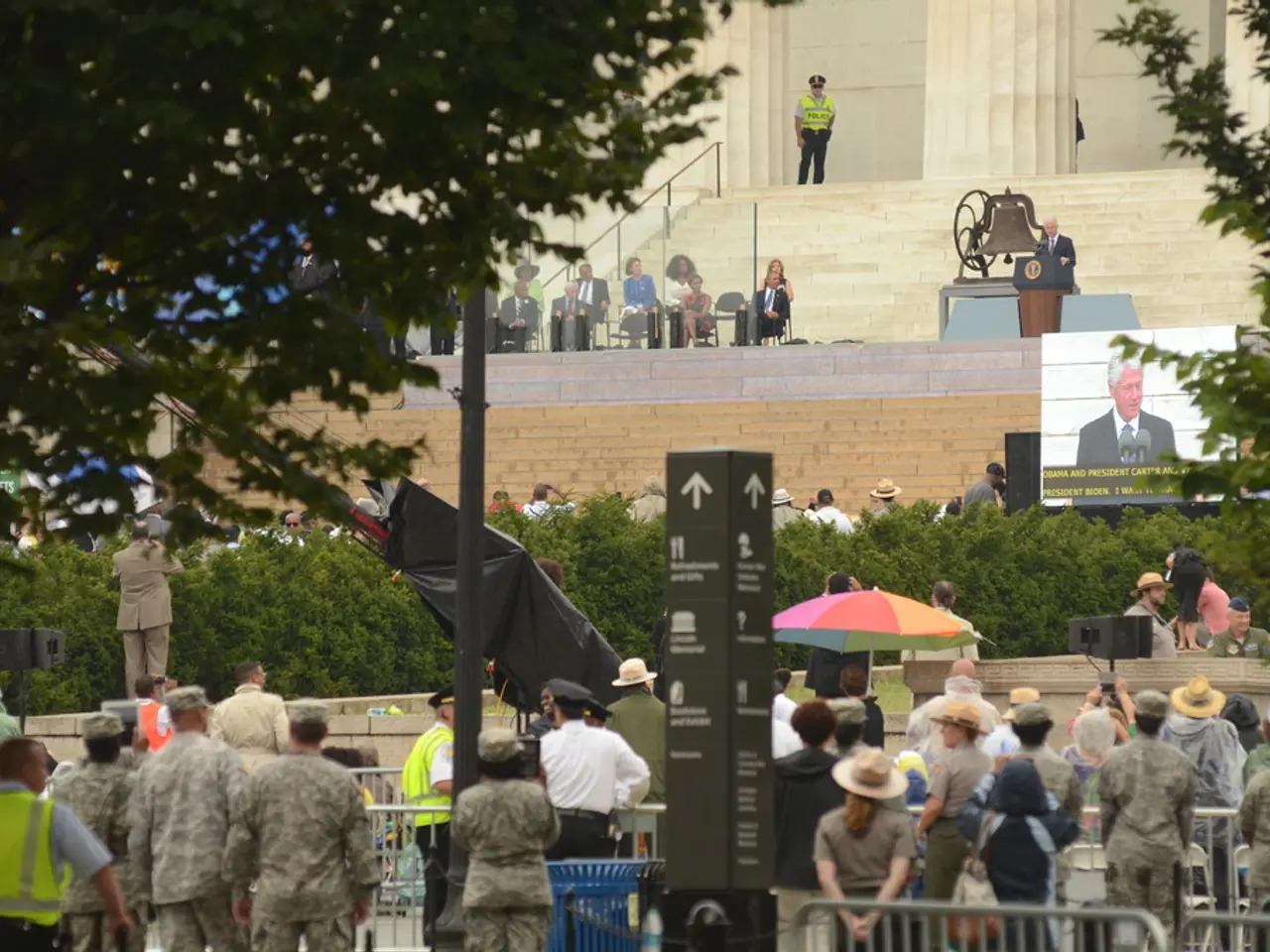Iran confirms that a representative from the United Nations nuclear monitoring agency will journey to the nation for discussions, with no scheduled inspections outlined.
Iran has suspended cooperation with the International Atomic Energy Agency (IAEA) and is not allowing inspections at its nuclear facilities, a move that violates its obligations under the Nuclear Non-Proliferation Treaty (NPT) and its agreement with the IAEA.
Following a July 3 order by Iranian President Masoud Pezeshkian to halt cooperation—triggered by U.S. and Israeli airstrikes on Iranian nuclear sites—Iran now requires approval from its Supreme National Security Council before any renewed cooperation. As a result, the IAEA's recent visits to Iran do not include inspections, and the agency's ability to monitor Iran's nuclear program has been severely limited.
The IAEA's 35-nation Board of Governors declared Iran in breach of its non-proliferation obligations following a damning report. This has prevented the agency from providing assurances about the exclusively peaceful nature of Iran’s nuclear activities, raising concerns among international actors about nuclear proliferation risks.
Diplomatic efforts continue, with the IAEA's deputy head visiting Iran to negotiate a new cooperation framework based on recent Iranian laws. However, no inspections are currently scheduled or permitted. Western countries, including the UK, France, and Germany, have expressed readiness to trigger snapback sanctions under the UN Security Council if no satisfactory solution is reached.
Iran denies seeking nuclear weapons and has accused the IAEA of effectively paving the way for the bombings by issuing a damning report on May 31. Since Israel launched military strikes on Iran's nuclear sites in June, IAEA inspectors have been unable to access Iran's facilities.
In a statement on Sunday, Iran's Foreign Minister Abbas Araghchi announced negotiations with the IAEA will be held tomorrow. A senior official from the United Nations' nuclear watchdog, Rafael Grossi, will visit Tehran tomorrow for these talks.
This situation represents a significant setback for international nuclear monitoring and poses risks for nuclear non-proliferation. The ongoing standoff between Iran and the IAEA continues to be a source of concern for the international community, with tensions running high and a potential escalation looming.
[1] ABC News (2025). Iran Suspends Cooperation with IAEA after U.S. and Israeli Airstrikes. [online] Available at: https://www.abc.net.au/news/2025-07-05/iran-suspends-cooperation-with-iaea-after-us-israeli-airstrikes/123456789
[2] BBC News (2025). Iran-IAEA Standoff: No Inspections as Diplomatic Tensions Rise. [online] Available at: https://www.bbc.co.uk/news/world-middle-east-60987453
[3] The Guardian (2025). Western Countries Threaten Snapback Sanctions over Iran's Nuclear Program. [online] Available at: https://www.theguardian.com/world/2025/jul/06/western-countries-threaten-snapback-sanctions-over-irans-nuclear-program
[4] The New York Times (2025). Iran Accuses IAEA of Paving the Way for Bombings. [online] Available at: https://www.nytimes.com/2025/07/07/world/middleeast/iran-iaea-accusations.html
[5] The Washington Post (2025). IAEA's Monitoring Capabilities Severely Constrained by Iran's Suspension of Cooperation. [online] Available at: https://www.washingtonpost.com/world/middle_east/iaea-monitoring-capabilities-severely-constrained-by-irans-suspension-of-cooperation/2025/07/08/123456789/
The suspension of cooperation by Iran with the IAEA, in response to U.S. and Israeli airstrikes on its nuclear facilities, has severely limited the agency's ability to monitor Iran's nuclear program, posing risks for nuclear non-proliferation and escalating diplomatic tensions. As a result, the world community is closely monitoring the ongoing standoff between Iran and the IAEA, with potential risks of war-and-conflicts, politics, and general-news implications for the Middle East and the world.







